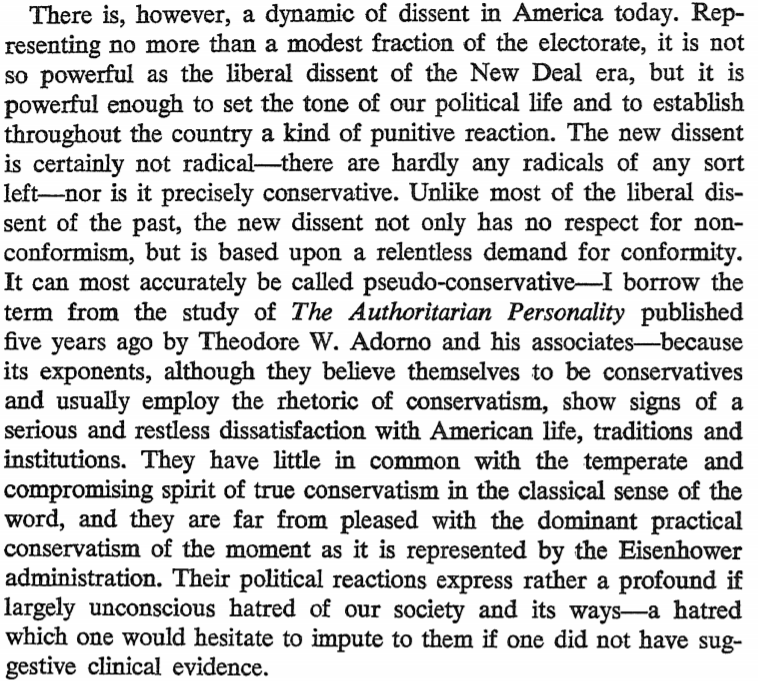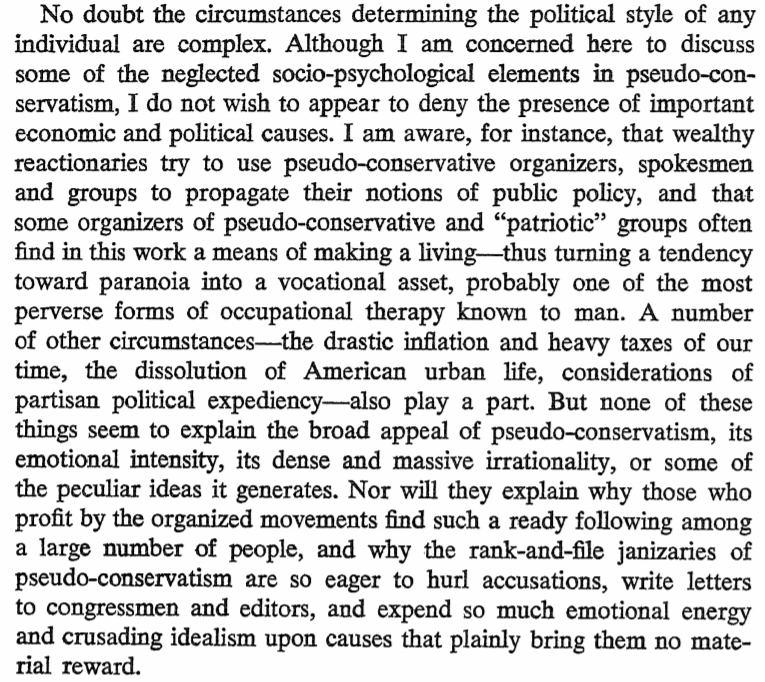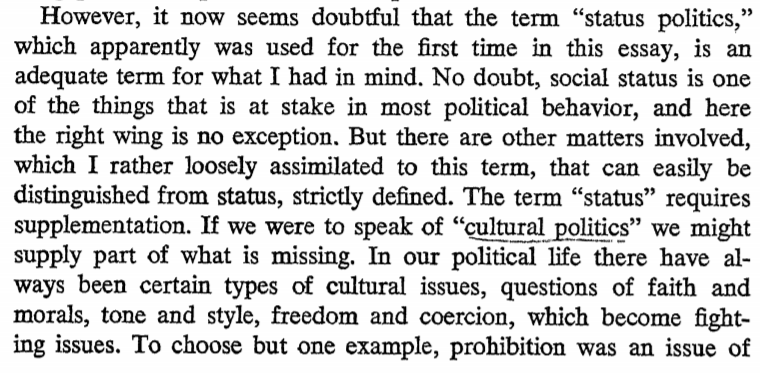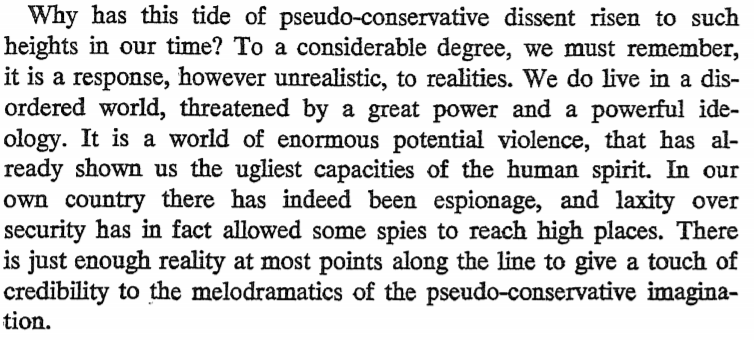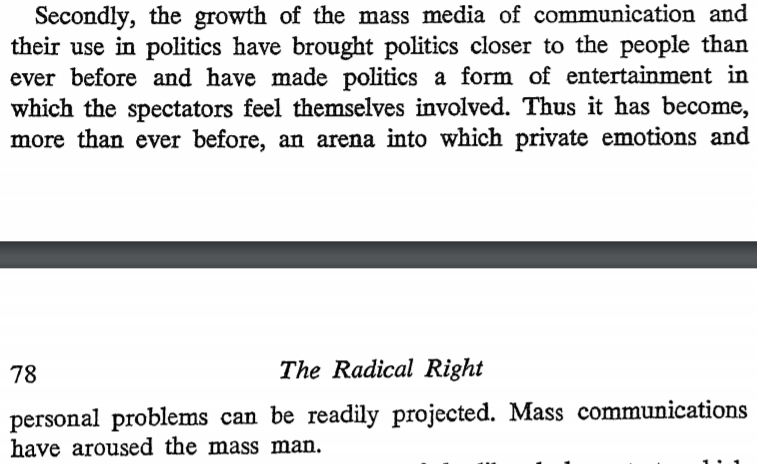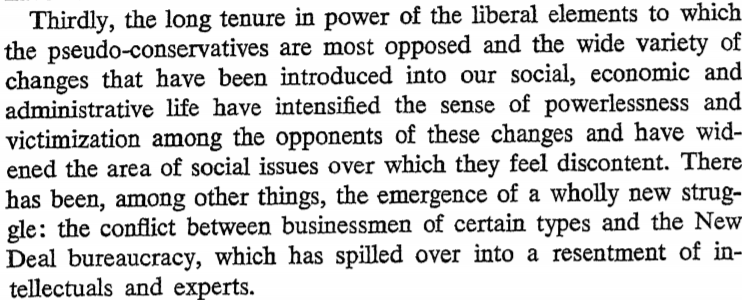Hofstadter sketches out a distinction between restrained conservatism and pseudoconservatives revolting against the present. It's a shame he drew so heavily on Adorno's research, which doesn't offer him much.
But this characterization of pseudoconservatives resonates deeply right now.
Hofstadter considers causes, but also hints at business interests (and nowadays donors) harnessing pseudoconservatism, and highlights how making money through pseudoconservatism incentivizes paranoia. Consider Alex Jones, Glenn Beck, Dinesh D'Souza and so on.
Why are pseudoconservatives obsessed by the threat of *their own government*, Hofstadter wonders.
Hofstadter famously and controversially answers that modernity's instability and America's complex sense of identity fuels status anxiety and conflict.
The status politics stuff hasn't aged perfectly, as Hofstadter himself quickly realized (in this postscript), but at the time, it was a dramatically new type of analysis in addition to basic economic interests.
Today, I think we would talk about the previous normative certainties of race, gender, sex, religion changing over the past 60 years and the reaction to that, blasted through partisan media (which is in part a direct successor to Hofstadter's pseudoconservatives.)
Why now, Hofstadter asks. Partly because new waves of immigrants no longer provide a step up the status ladder. Today we might say the unsettling of racial, religious and gender hierarchies disrupts often white, evangelical/conservative Catholic and male status.
Hofstadter fingers the mass media as a cause, today it is massively intensified by the participatory and personalizable nature of the Internet.
And the long period of liberal dominance, which the right now feels as sustained and total, incorporating all aspects of politics and culture.
Although pseudoconservatism is a small phenomenon, it has outsized influence. "In...
Hofstadter sees parts of pseudoconservatism as paranoid fantasy, not a new event in history. The past four years has been a Bircherfied right. But where does this pathologizing get us, beyond catharsis? I'm not sure.
Finally, Hofstadter returns to the distinction between conservatism and pseudoconservatism. Pseudoconservatism's total opposition to compromise takes it out of the bounds of democratic politics. Instead, it is "implicit utopianism." /Fin.
